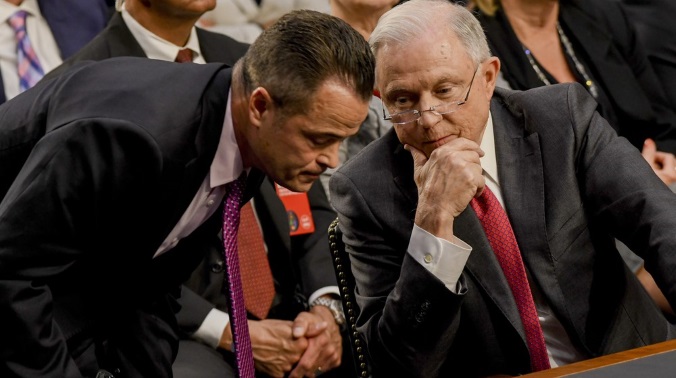Research is the backbone of scientific evidence for the answers to any problem. But determining the real attitude of Attorney General Jeff Sessions toward medical cannabis doesn’t take too much scientific research. Seemingly at odds with the Commander in Chief, who has previously stated his support for cannabis research and states’ rights to regulate medical marijuana, Sessions has once again let his biases shine through.
Ending the Monopoly or Not?
In a Senate Judiciary Hearing on Wednesday, October 18th, Senator Orrin Hatch from Utah asked Sessions his thoughts on competition in the field of cannabis research. Agreeing that medical research is necessary, Sessions at first seemed to support expanding research but quickly qualified his statement by negating the need for dozens of competitors. “I think it would be healthy to have some more competition in the supply, but I don’t — I’m sure we don’t need 26 new suppliers,” bumbled Sessions.
The University of Mississippi has had a monopoly on the research for years because of the Drug Enforcement Administration’s (DEA) single-contract requirement for those who grow cannabis for research. But the DEA relaxed that rule in August 2016 and currently has 26 applications pending for growers of research-grade marijuana. Sessions seems to think that 26 research facilities and growers are too much? Try telling that to the pharmaceutical industry!
Understaffed or Under-Researched?
Sessions goes on to say that the DEA wouldn’t have enough staff for oversight of the expanded research. Implying that the DEA is understaffed is unwarranted. Certainly, the DEA considered the increased staffing needs when it rescinded the single-facility-contract requirement for this research. The DEA has had the responsibility of oversight for decades and must know what is required, especially with today’s advances in technology. Staffing shouldn’t be a concern. Supply and demand, Mr. Sessions, supply and demand.
And the DEA isn’t holding up the research process. In fact, it has stated that evaluating the number of growers needed depends on the quantity “necessary to provide an adequate and uninterrupted supply of cannabis.” This expansion takes into account the supply required to evaluate numerous factors, just like any pharmaceutical grade research, which is precisely why the DEA ended the University of Mississippi’s monopoly on marijuana research: it simply wasn’t feasible to have one facility keep up with the supply and demand.
Questions about the diversity and quality of cannabis products warrant the use of multiple research-grade growers. Chemical composition and potency of cannabinoids to produce cannabinoid profiles, along with vehicles of consumption such as oils, tinctures, whole flower, vaporizers, and more, are just a few of the reasons expanded research is necessary.
How Long Must the Plight Go On?
Considering recent and ongoing scientific findings that cannabinoids and medical marijuana are useful in the treatment of anxiety disorders, PTSD, seizure disorders, inflammatory disorders, migraines, and many other medical concerns, it is sad to see Sessions’ continued fight against much needed medical research. And with President Trump recently declaring the opioid epidemic a “public health emergency,” Sessions’ decision to block cannabis research threatens to hinder the development of one of the most promising treatment channels. Perhaps it is time that President Trump expanded his policy success by removing Sessions and replacing him with someone who will side with medical research.

